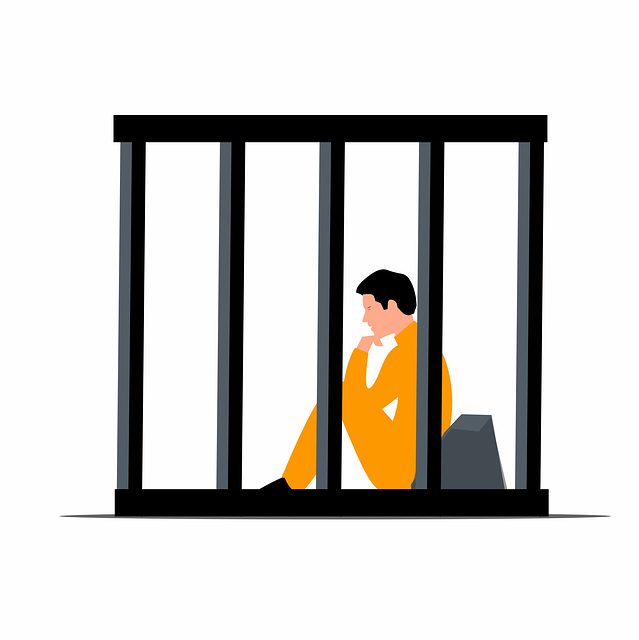Criminal law globally has witnessed significant trends driven by technology and social change. Advancements like digital forensics, data analytics, and real-time communication tools have revolutionized investigations and case management. Victim rights and restorative justice have gained prominence, with policies prioritizing victims' needs. Technological innovations enhance evidence presentation in court, ensuring fairness. Meanwhile, constitutional guarantees ensure fair trials and protect defendants' rights, with the burden of proof on prosecutions. Social and political shifts, such as gender equality initiatives and privacy debates, continue to shape criminal law globally, making it responsive to modern society's evolving needs.
Delve into the dynamic world of criminal law, where recent trends and technological advancements are reshaping legal proceedings. Explore how technology is revolutionizing criminal prosecutions, ensuring efficiency and accuracy. Uncover critical insights into defendant rights, emphasizing fair trials and justiciable outcomes. Furthermore, analyze the profound impact of social and political shifts on global criminal justice systems, highlighting their evolution and adaptation to modern times. Stay informed about these developments to navigate the ever-changing landscape of criminal law.
- Recent Trends and Developments in Criminal Law
- The Role of Technology in Modern Criminal Prosecutions
- Defendant's Rights and Fair Trials: A Deep Dive
- Impact of Social and Political Changes on Criminal Justice Systems
Recent Trends and Developments in Criminal Law

In recent years, criminal law has witnessed several notable trends and developments that are shaping legal landscapes worldwide. One prominent shift is the increased focus on victim rights and restorative justice, with many jurisdictions adopting policies that prioritize the needs and voices of victims in the criminal process. This shift fosters a more holistic approach to crime, emphasizing rehabilitation and reconciliation over purely punitive measures.
Additionally, technological advancements have significantly impacted criminal law. Digital forensics has become an indispensable tool in investigating cybercrimes, while data analytics aids in identifying patterns and predicting potential criminal activities. These innovations challenge traditional notions of evidence collection and present both opportunities and complexities in terms of privacy, data protection, and the admissibility of digital evidence in court.
The Role of Technology in Modern Criminal Prosecutions

In the digital age, technology plays a pivotal role in modern criminal prosecutions. With advancements in forensics and data analytics, investigators now have powerful tools to uncover evidence, track down suspects, and build robust cases. For instance, digital forensics experts can extract data from devices like smartphones and computers, providing insights into a suspect’s activities and intentions. Additionally, advanced algorithms enable the analysis of vast amounts of data, helping law enforcement identify patterns and connections that might have been missed through traditional methods.
These technological innovations streamline investigations, enhance accuracy, and ensure more efficient criminal law proceedings. Real-time communication tools also facilitate better collaboration among law enforcement agencies, prosecutors, and defense attorneys, leading to swifter case management. Furthermore, technology supports the presentation of evidence in court, making it more accessible and easier to understand for both judges and juries. Overall, the integration of technology into criminal law has revolutionized the way cases are handled, ultimately impacting the fairness and effectiveness of the justice system.
Defendant's Rights and Fair Trials: A Deep Dive

In any criminal law scenario, understanding the defendant’s rights and ensuring fair trials is paramount. Defendants are protected by a series of constitutional guarantees designed to safeguard their due process and ensure a just outcome. These include the right to remain silent, the right to legal counsel, and the right to a speedy and public trial by an impartial jury. Furthermore, defendants are entitled to confront witnesses against them, ensuring that evidence is presented transparently and cross-examination is allowed.
A fair trial necessitates a neutral judiciary, free from bias or influence. The burden of proof lies with the prosecution, who must present compelling evidence beyond a reasonable doubt. This principle ensures that convictions are based on solid facts and not mere speculation. In addition, defendants have the right to appeal decisions, providing an additional layer of protection against potential miscarriages of justice. These rights form the bedrock of criminal law, ensuring that the process is both equitable and just.
Impact of Social and Political Changes on Criminal Justice Systems

Social and political changes significantly shape and reflect upon criminal justice systems worldwide. With evolving societal norms, values, and rights, criminal laws must adapt to address emerging issues. For instance, the global push for gender equality has led to stricter laws against domestic violence, reflecting a societal shift in recognizing and addressing intimate partner abuse. Similarly, advancements in technology have sparked debates around privacy, resulting in legislative updates to protect data and mitigate cybercrime. These changes ensure that criminal law remains relevant and responsive to the needs of modern society.
Political landscapes also play a pivotal role in determining the course of criminal justice. Changes in government policies can influence sentencing guidelines, prison reform initiatives, and even the classification of certain offenses. For example, some countries have experienced reductions in mandatory minimum sentences as part of a broader move towards more rehabilitative justice systems. Such transformations reflect political commitments to alternatives that prioritize crime prevention, victim restoration, and offender rehabilitation over purely punitive measures.
In conclusion, the realm of criminal law is a dynamic landscape, continually evolving with social, political, and technological shifts. From recent trends and developments to the pivotal role of technology in modern prosecutions, each aspect intertwines to shape fair trials and justice systems globally. Understanding these changes is crucial for both legal professionals and folks navigating this intricate web. By staying informed about criminal law’s multifaceted nature, we can foster a more equitable and responsive justice system.
